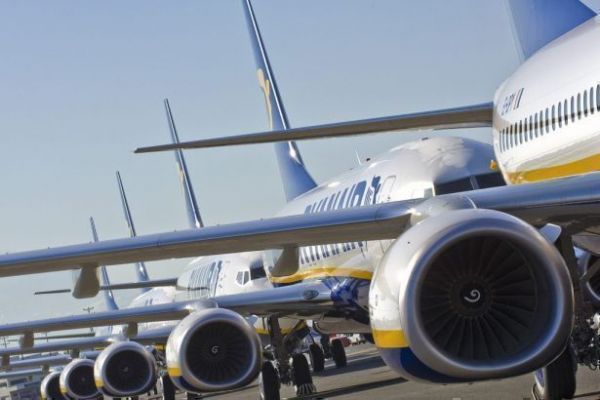Ryanair plans to cut significantly fewer jobs than the 3,000 it originally estimated, due to the fact that 97% of pilots and over 90% of cabin crew have signed up so far to pay cuts and work practice changes, its director of operations has said.
Europe's biggest budget airline had warned it would have to cut one in five of its pilots and cabin crew if they did not agree to pay cuts of up to 20% after the COVID-19 crisis ravaged its business.
The Irish airline struck a pay deal with Spanish pilots on Thursday August 20, leaving agreements outstanding with pilots in Belgium and cabin crew in Italy and Germany.
"We haven't finalised the number yet, we originally said there was going to be 3,000 redundancies but we have been able to reduce that significantly," Neal McMahon told Reuters in a telephone interview. "Broadly speaking [pilots and cabin crew] recognise the grim situation we are in, and they have been pragmatic."
Ryanair's Italian cabin crew union has put an agreement out to ballot, while there were further talks in Germany on Friday August 21 and the airline is in the middle of a collective redundancy process in Belgium, Ryanair people director Darrell Hughes said.
While cabin crew in Spain failed to join pilots in agreeing terms this week, the collective bargaining system there allows Ryanair to implement the changes, and Hughes is confident that its position will stand up to challenge.
The executives added that the airline has managed its pilot numbers without redundancies to date through a mixture of voluntary part time work, voluntary unpaid leave and spreading shifts around.
Number Of Redundancies Depends On Winter Booking Numbers And 2021 Disruption
McMahon and Hughes said that the number of redundancies will depend on how winter booking fare and how much the pandemic disrupts travel next year.
"Airlines have for a long time relied on business traffic, visiting friends and relatives and maybe an older non-family market for travel in September, October, November," Hughes said. "It's a big question as to what that level of demand is going to be, but it's not looking good at present."
News by Reuters, edited by Hospitality Ireland. Click subscribe to sign up for the Hospitality Ireland print edition.









